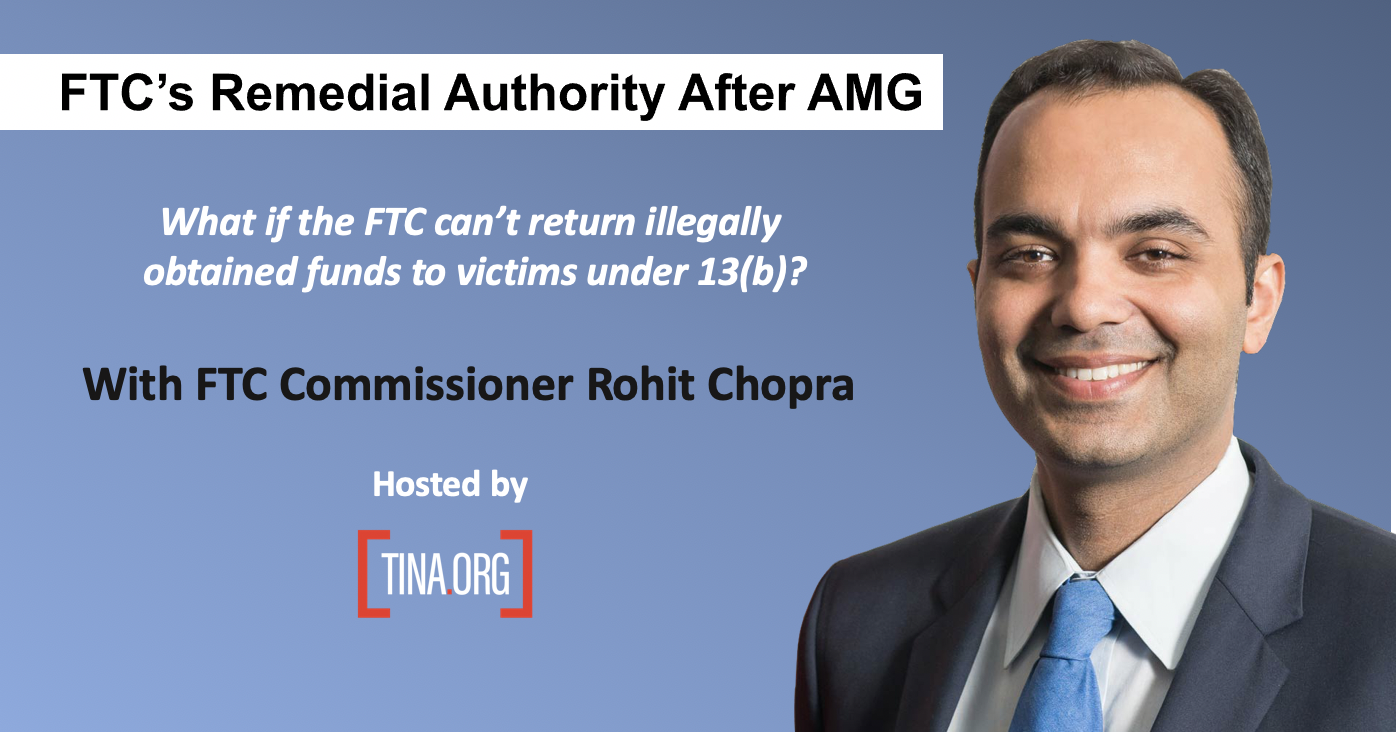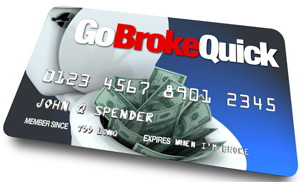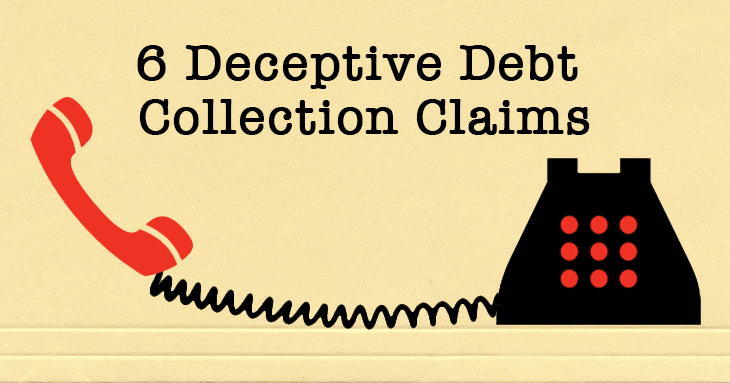
TINA.org Webinar: FTC’s Remedial Authority After AMG
In case you missed it, watch the webinar with FTC Commissioner Rohit Chopra.
 Perhaps no segment of our economy is more confusing to the normal, everyday consumer than financial services. Whether it’s the lingo, such as Annual percentage rate; the amount of interest charged to a credit card, loan or mortgage account balances annually., HECM, Loan To Value ratio. What mortgage lenders use to determine how risky a borrower is. The higher the number, the riskier the loan, and the higher the interest will be on that loan., etc., the laws, or the tricky fine print, many of us don’t have a clear understanding of what we’re getting into when applying for credit or loans, which makes us prey to unscrupulous lenders and misleading advertising
Perhaps no segment of our economy is more confusing to the normal, everyday consumer than financial services. Whether it’s the lingo, such as Annual percentage rate; the amount of interest charged to a credit card, loan or mortgage account balances annually., HECM, Loan To Value ratio. What mortgage lenders use to determine how risky a borrower is. The higher the number, the riskier the loan, and the higher the interest will be on that loan., etc., the laws, or the tricky fine print, many of us don’t have a clear understanding of what we’re getting into when applying for credit or loans, which makes us prey to unscrupulous lenders and misleading advertising
“Get a loan – regardless of bad credit history!”
“Need a credit card – no income, no problem!”
The ads – whether in the form of pre-approved credit offers, e-mail solicitations, classifieds listings (such as those found on Craigslist or in the local Thrifty Nickel publication), late-night TV commercials, or daytime radio spots – are enticing, especially if you’re cash-strapped and struggling to pay bills. Though many lenders are legitimate, keep in mind that there are also many shady operations in the financial services area and you can’t always depend on the promises made in the ads.
How to Protect Yourself
Read more about Credit & Loans so that you can protect yourself and your credit history from permanent damage.
In case you missed it, watch the webinar with FTC Commissioner Rohit Chopra.
Experts weigh in on how to avoid being a victim of these latest campus scams.
There are laws on what collectors can say or do, as the country’s top two debt buyers recently found out.

